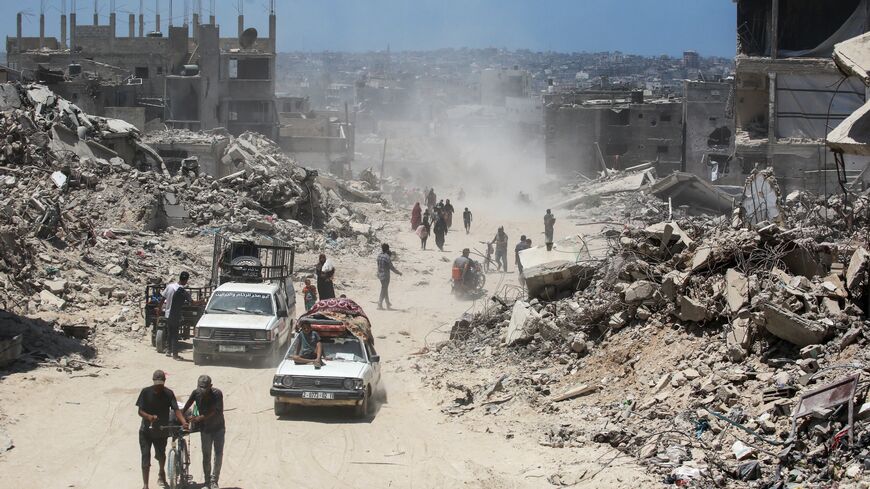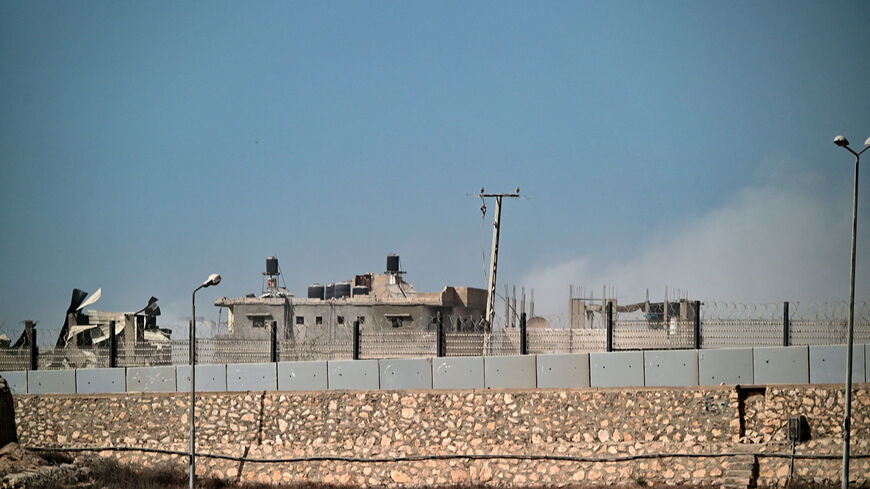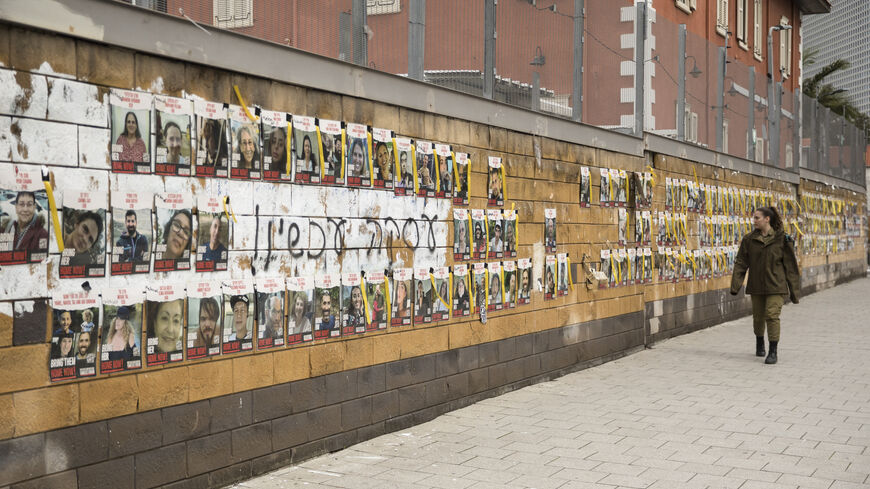Mossad chief leaves Cairo after talks with US, Egypt, Qatar on new Israel-Hamas deal
The meeting in Cairo between Israeli, American, Egyptian and Qatari top officials ended after several hours of discussions in an attempt to advance a deal for the release of hostages and a cease-fire in Gaza.

Mossad Director David Barnea left Cairo Tuesday evening after meeting with CIA Director William Burns, Egypt's General Intelligence Service Director Abbas Kamel, and Qatari Prime Minister and Minister of Foreign Affairs Sheikh Mohammed bin Abdulrahman Al Thani in an effort to advance a hostage-release deal and the cessation of fighting with Hamas. Israeli officials declined to say whether any advancement was made, but an unnamed Egyptian diplomatic source told Arabic Al-Hadath that the atmosphere in the discussions was positive.
The composition of the Israeli delegation to the talks could indicate to some extent the nature of the discussions that took place in the Egyptian capital. Alongside Barnea, who has been leading current talks since a meeting in late January in Paris, were Shin Bet head Ronen Bar and the diplomatic adviser to Prime Minister Benjamin Netanyahu, Ofir Falk. On the other hand, Maj. Gen. Nitzan Alon, responsible for the coordination of the hostages and the missing, did not travel to Cairo.
The presence of Falk signals that discussions included not just the Paris proposal for a deal, but also issues such as the disagreement between Israel and Egypt over control of the Philadelphi Corridor, the narrow strip of land between Gaza and Egypt, and the humanitarian situation in Rafah. According to the Israeli press, the absence of Alon reflects the disagreements within the Israeli leadership on the way that these discussions should have been conducted, with Netanyahu refusing to put on the table a counterproposal after the conditions were set out by Hamas last week.
The outline agreed upon in Paris on Jan. 28 in a meeting between Burns, Barnea, Kamel and Sheikh Mohammed would see the release of Israeli hostages in two or three stages. The first stage of release would take place within a 45-day timeframe, with Israel halting all fighting during that period. In its response to the proposal, Hamas demanded that the outline lead to a complete end to the war and withdrawal of the Israeli military from Gaza, alongside other conditions that Netanyahu dismissed as "delusional." Still, Israel agreed to continue negotiating.
Israel's Channel 13 reported that the Shin Bet, the Israel Defense Forces and the Mossad pushed for Israel to present a counterproposal in Cairo, and that discussions within the war cabinet on the issue continued almost until the moment the Israeli delegation departed from Cairo. Netanyahu reportedly rejected the idea, arguing that Hamas must first back away from some of its conditions.
Pleading with the Israeli government to advance a deal, families of the hostages held in Gaza wrote to Israel's leaders, "We are begging you in every way possible. Do not give up and do not come back [from Cairo] without a deal. Your mission is a historic and a moral one, to be enshrined in the Jewish history, for the liberation and rescue of our loved ones." The families stressed that while they were all overcome by joy over the rescue of two hostages earlier this week from Rafah, it is clear that Israel will not be able to rescue all the remaining 134 abductees in similar military operations.








